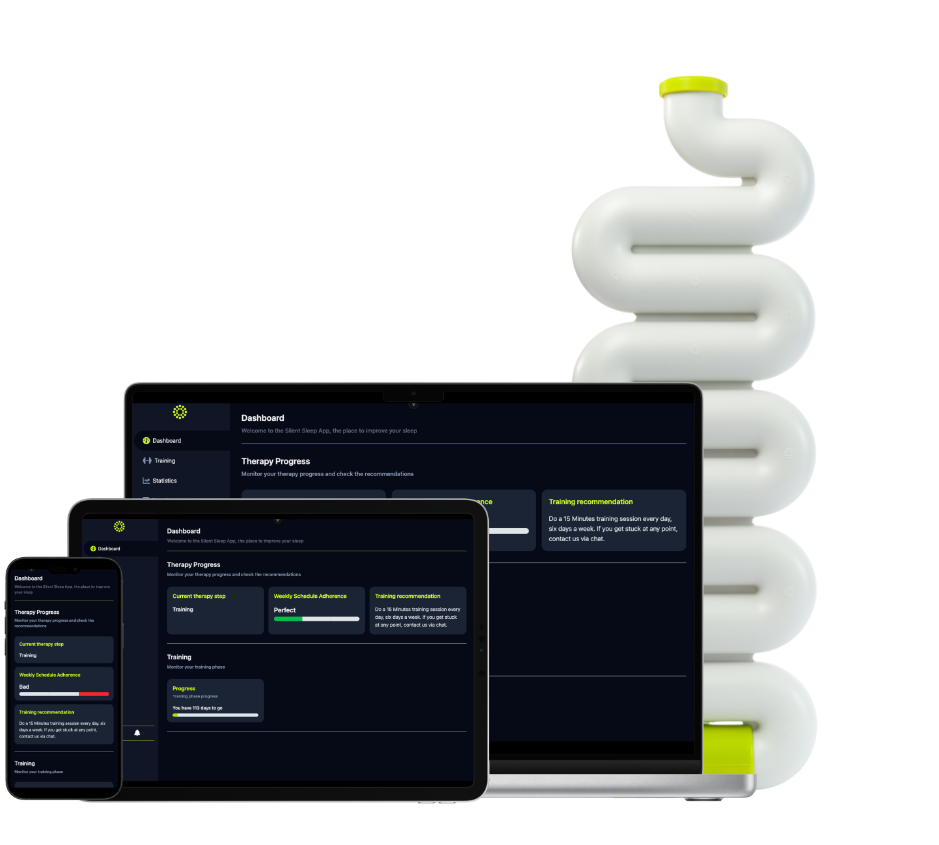Du bist ständig müde und hast weniger Energie für deinen Alltag. Das erhöht auch das Unfallrisiko.
Wenn dein Körper nachts zu wenig Sauerstoff bekommt, belastet das dein Herz stark. Das Risiko für Herzprobleme steigt deutlich.
Schlechter Schlaf macht dich gereizt. Das kann deine Beziehungen belasten.
Eine unbehandelte Schlafapnoe erhöht das Risiko für einen Schlaganfall erheblich.
Wenn du müde bist, fehlen dir Energie und Motivation für alltägliche Aktivitäten.
Schlechter Schlaf kann deine sexuelle Gesundheit negativ beeinflussen.
Du wirst vergesslich und kannst dich schlecht konzentrieren. Das beeinträchtigt deine Arbeit und deinen Alltag.
Gestörter Schlaf bringt deinen Blutzucker durcheinander und erhöht das Diabetes-Risiko.
Silent Sleep Training
Nach einer intensiven Anfangsphase kannst du mit nur 30 Minuten pro Monat dein Training aufrechterhalten. So schläfst du den Rest deines Lebens OHNE Masken, Schienen oder andere Hilfsmittel, die du während des Schlafens tragen müsstest.
Das Problem
Schlafapnoe und Schnarchen entstehen oft durch eine geschwächte Muskulatur im Hals- und Rachenbereich. Wenn diese Muskeln im Schlaf erschlaffen, fällt der Rachen zusammen und blockiert deine Atemwege.
Die Lösung
Mit dem Silent Sleep Training trainierst du gezielt deine Rachenmuskulatur. Dadurch bleiben deine Atemwege im Schlaf offen und du kannst frei atmen.
Die Umsetzung
Das Silent Sleep Training leitet dich mit einer App und einem speziellen Trainingsgerät an. Die Therapie wird individuell auf dich abgestimmt und du wirst kontinuierlich betreut.
Vertraue auf höchste Qualität und medizinische Sicherheit
Die Wirkung wurde durch eigene, nationale und mehrere internationale Studien belegt. Das Silent Sleep Training wirkt bereits nach wenigen Wochen und hat keine Nebenwirkungen.
Kundenmeinungen
Meinungen von Kunden, die das Silent Sleep Training ausprobiert und ihr Leben verändert haben


